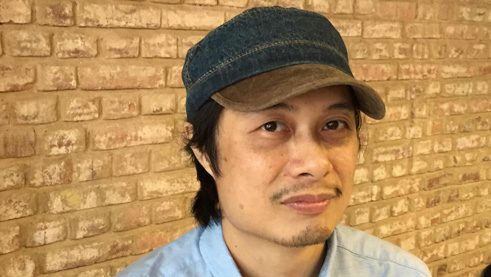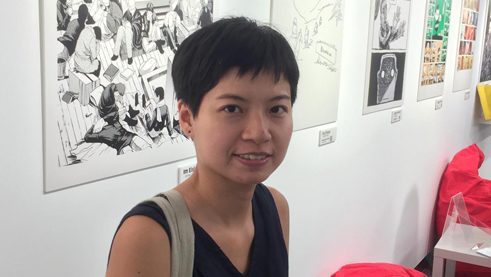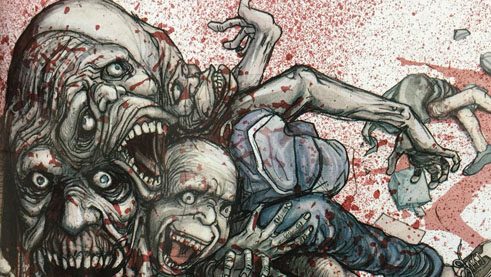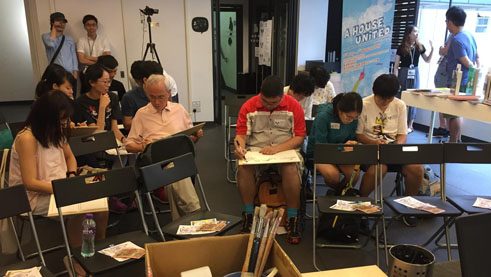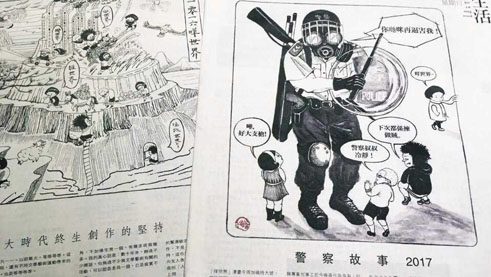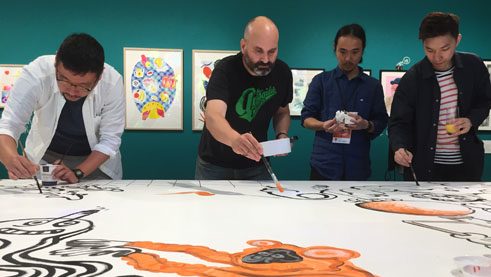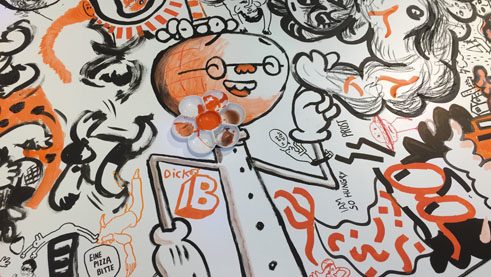Hong Kong and Berlin
Comic Exchange of East and West
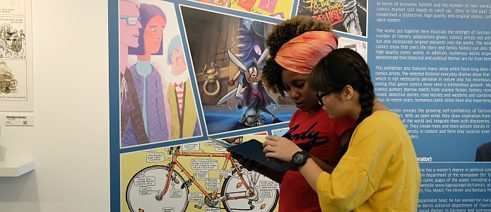
The exhibition A House United.
| Photo: Wing Lok Kwok
In Berlin and China, two exhibitions by the Goethe-Institut Hong Kong bring together comic strip artists and readers from Hong Kong and Germany.
Are there popular zombie comics in Germany? Do German comic book artists deal with current, political topics? What role do Japanese manga play in Germany? These are some of the questions asked by the visitors to the travelling exhibition A House United currently on show in Hong Kong. The exhibition, produced for the international department of the Frankfurt Book Fair, presents a selection of contemporary German comic artists and has found a captive audience at the Goethe-Institut’s exhibition space in the Hong Kong Arts Centre.
Comic strips as political statements
She began it in 2014, the year of the so-called Umbrella Movement when tens of thousands took to the streets to express their resentment over the growing Chinese influence on the special administrative zone, which has been part of the People’s Republic for twenty years. “I was also on the streets back then and shortly afterward, I started my comic strip to let off steam,” says Au Wah Yan.The illustrator Sam Tse, who attended another event by the German guests in the Comix Homebase cultural centre, specialises in monster and zombie stories. They also have political undertones, as many comics in Hong Kong. During the meeting with visitors from Berlin, Sam Tse is especially interested in the work of German-speaking comic strip makers who work in the horror genre. He is particularly fascinated by the scratchboard works by Zurich artist Thomas Ott (Greetings from Hellville). Tse mentions that he also wants to try out Ott’s technique now.
Kim Il-sung meets the Teletubbies
The most intensive exchange takes place between members of the Hong Kong artist group Ping Pong and a group of German artists. It began with a meeting in Berlin a few weeks before the Hong Kong visit. In late June, five artists from Hong Kong and three from Germany met for one day at the Berlin Museum of Communication and drew a large collaborative work as part of an exhibition about Hong Kong comic strips.The five members of the Hong Kong art collective showed their work around this joint work of art. Those by Leumas To, the group’s founder, were particularly remarkable in the way they connected pop cultural and religious references with political criticism. Kim Il-sung meets the Teletubbies, current news images of human rights violations in North Korea are garnished with quotes from the Bible.
During the German guests’ Hong Kong visit a few weeks later, Ping Pong founder Leumas To also looked in on the Comix Home Base and brought along the latest Ping Pong compilation. In his chapter, he contrasts drawings of Hong Kong politicians and social actors with quotations from the films of director Wong Kar-Wai, resulting in subtle political commentaries.
